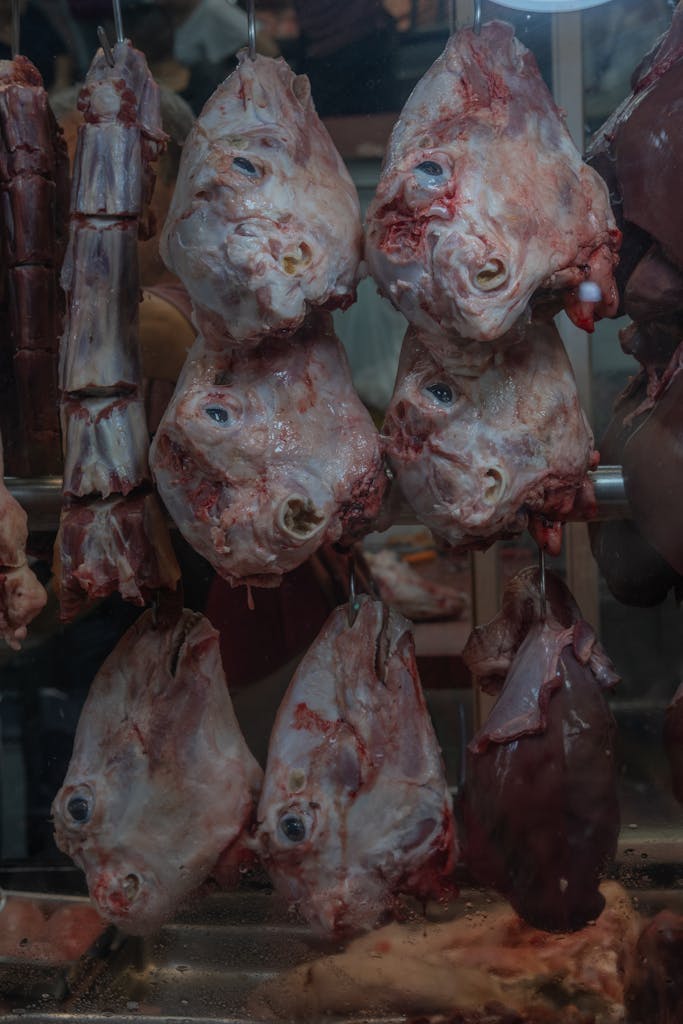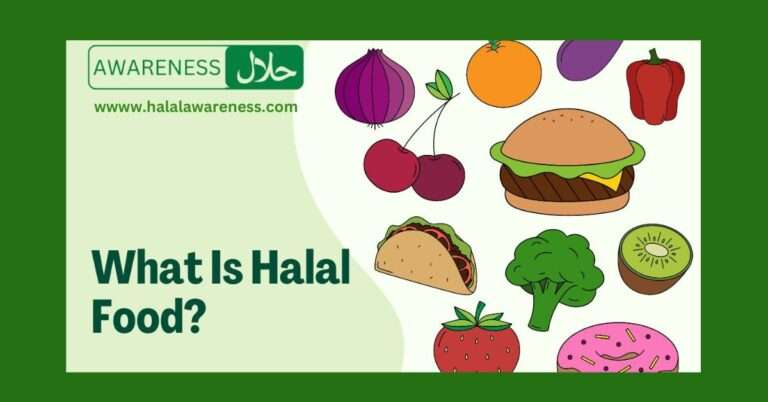How Halal or Haram Meat Is Slaughtered: A Detailed Guide
Meat consumption is a fundamental part of many cultures and religions, but have you ever wondered what truly differentiates halal and haram slaughtering methods? The way an animal is slaughtered determines whether the meat is permissible (halal) or forbidden (haram) in Islam.
Halal meat is slaughtered following Islamic guidelines, ensuring humane treatment, a swift cut to the throat, and complete blood drainage, while haram meat does not meet these requirements.
In this guide, we’ll explore the rules, ethical considerations, and differences in halal and haram slaughtering processes.
✅ What Makes Meat Halal or Haram?
1. What is Halal Slaughter? (Zabiha Method)
Halal meat must meet the following requirements:
✔ Animal Must Be Permissible: Only halal animals such as cows, goats, sheep, and poultry can be slaughtered. Pigs and carnivorous animals are forbidden.
✔ Proper Slaughtering Process: A Muslim must perform the slaughter, reciting “Bismillah, Allahu Akbar” before cutting the throat.
✔ Quick and Humane Slaughter: The animal’s throat, windpipe, and blood vessels must be cut swiftly to minimize suffering.
✔ Complete Blood Drainage: Blood is considered impure (najis) in Islam and must be fully drained from the body.
✔ No Stunning Before Slaughter: In most interpretations, stunning the animal before slaughter is discouraged unless necessary.

2. What Makes Meat Haram?
Meat is considered haram if:
🚫 The Name of Allah is Not Invoked: If the butcher does not say “Bismillah, Allahu Akbar” during slaughter, the meat becomes haram.
🚫 Improper Slaughter Method: If the throat is not cut properly or the blood is not drained completely, it is not halal.
🚫 Death Before Slaughter: Animals that die from natural causes, stunning, or other means before slaughter are not permissible to eat.
🚫 Non-Halal Animal Consumption: Pork and any meat from carnivorous animals are always haram.

🏡 The Halal Slaughtering Process Step-by-Step
Step 1: Choosing the Right Animal
- Ensure the animal is from a permissible species.
- The animal must be healthy and free from disease.
Step 2: Preparing for Slaughter
- The animal must be well-fed and given water before slaughter.
- It should be handled gently to reduce stress.
Step 3: The Slaughter Process
- Position the animal in the correct direction (facing the Qibla).
- Recite “Bismillah, Allahu Akbar” before making the cut.
- Use a sharp knife to swiftly cut the throat, windpipe, and blood vessels.
- Ensure that all blood drains completely before proceeding.
Step 4: Post-Slaughter Handling
- The meat should be cleaned and processed hygienically.
- Cross-contamination with non-halal meat must be avoided.
For more details on Halal Meat, check out our in-depth guide.
🍽️ The Ethical and Health Benefits of Halal Slaughter
✔ More Humane Treatment: The Islamic method emphasizes kindness and minimal suffering for the animal. ✔ Higher Meat Purity: Proper blood drainage reduces bacteria and toxins in the meat. ✔ No Harmful Additives: Halal meat is free from harmful substances such as pork by-products or non-halal preservatives.

❌ Common Myths About Halal Slaughter
🚫 “Halal Slaughter is Cruel” – The process is designed to minimize pain and suffering. 🚫 “Stunning is Always Used” – Many halal slaughterhouses avoid stunning altogether. 🚫 “All Meat Sold as Halal is Truly Halal” – Always check for trusted halal certification.
🏁 Conclusion: Why Halal Slaughter Matters
Following halal slaughter methods isn’t just about religious requirements—it also ensures ethical treatment, better hygiene, and a healthier diet.
By understanding the differences between halal and haram slaughter, consumers can make informed food choices that align with their faith and well-being.
Choosing halal meat means supporting humane practices, food safety, and religious integrity.
Frequently Asked Questions (FAQs)
Q: Can non-Muslims eat halal meat?
A: Yes, halal meat is safe and beneficial for everyone.
Q: Is supermarket halal meat always authentic?
A: Not always. Look for proper halal certification before purchasing.
Q: Does halal slaughter affect meat quality?
A: Yes, halal meat is often cleaner due to complete blood drainage.
Q: Can stunning be used in halal slaughter?
A: Some halal authorities allow stunning if it does not kill the animal before slaughter.







